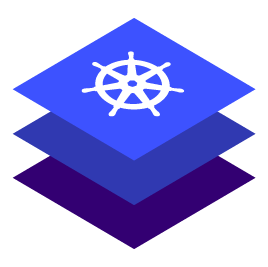AWS Air-gapped AMI
Create an AMI using KIB for use in an air-gapped cluster
Using KIB, you can build an AMI without requiring access to the internet by providing an additional --override flag. Depending on which version of DKP you are running, steps and flags will be different.
Create the directories where you will place the air-gapped bundles:
CODEmkdir artifacts mkdir artifacts/imagesDefine an environment variable for the Kubernetes version that corresponds with DKP release you are installing. You can find the correct Kubernetes version by checking the release notes for the release you are installing.
CODEexport VERSION=1.23.12Set an environment variable for the AMI’s OS you are will be using. The OS packages bundles will contain the RPMs for
containerd, Kubernetes and all of their dependencies required to install these packages without access to any external RPM repositories. The available options are:centos_7_x86_64centos_7_x86_64_fipsredhat_7_x86_64redhat_7_x86_64_fipsredhat_8_x86_64redhat_8_x86_64_fips
CODEexport BUNDLE_OS=centos_7_x86_64Download the OS packages bundle:
CODEcurl --output artifacts/"$VERSION"_"$BUNDLE_OS".tar.gz -O https://downloads.d2iq.com/dkp/airgapped/os-packages/"$VERSION"_"$BUNDLE_OS".tar.gzDownload the Kubernetes images bundle. This bundle includes the necessary images for
kubeadmto bootstrap a KubernetesNode.The available options for each Kubernetes version are:
<version>_images.tar.gz<version>_images_fips.tar.gz
CODEcurl --output artifacts/images/"$VERSION"_images.tar.gz -O https://downloads.d2iq.com/dkp/airgapped/kubernetes-images/"$VERSION"_images.tar.gzDownload the PIP packages. This bundle includes a few packages required by DKP to bootstrap machines.
CODEcurl --output artifacts/pip-packages.tar.gz -O https://downloads.d2iq.com/dkp/airgapped/pip-packages/pip-packages.tar.gzSet a variable that indicates which OS-specific
containerdbundle to download. The available options are:centos_7.9_x86_64rhel-7.9-x86_64rhel-8.2-x86_64rhel-8.4-x86_64ubuntu-20.04-x86_64ubuntu-18.04-x86_64ol-7.9-x86_64sles-15.3-x86_64
CODEexport CONTAINERD_OS=centos-7.9-x86_64Download the
containerdbundle:CODEcurl --output artifacts/containerd-1.4.13-d2iq.1-"$CONTAINERD_OS".tar.gz --location https://packages.d2iq.com/dkp/containerd/containerd-1.4.13-d2iq.1-"$CONTAINERD_OS".tar.gzFollow the instructions to build an AMI in the setting an additional
--overrides overrides/offline.yamlflag.
Then, you can seed your docker registry.
This Docker image includes code from the MinIO Project (“MinIO”), which is © 2015-2021 MinIO, Inc. MinIO is made available subject to the terms and conditions of the GNU Affero General Public License 3.0. The complete source code for the versions of MinIO packaged with DKP/Kommander/Konvoy 2.3.2 are available at these URLs:
